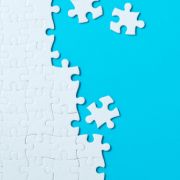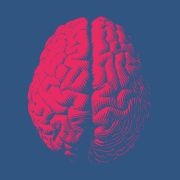What Is Autism?
Autism is a developmental disorder that affects information processing. People with autism have difficulties with social and communication skills. They have restricted interests and engage in repetitive behaviors. They also tend to experience sensitivity or discomfort from sensory stimulation such as certain lights or sounds.
Because autism's symptoms vary greatly, the condition is said to exist on a spectrum, referred to as Autism Spectrum Disorder. Asperger's syndrome refers to "high functioning" autism, but it’s no longer a formal diagnostic term.
Autism usually manifests by age two. The condition is diagnosed four times more frequently in males than in females, according to the CDC, although women are often overlooked and misdiagnosed. The frequency of diagnosis has surged over the past 20 years; it is not clear whether the incidence is truly increasing, whether experts are more aware of it, or whether the diagnosis has shifted to include lesser degrees of impairment.
There is no cure for autism, nor is one universally sought: Many people argue that autism should not be framed as a medical condition in need of amelioration. For those on the lower-functioning end of the spectrum, targeted practices and therapies can help alleviate symptoms.

While the severity of symptoms varies greatly, there are invariably impairments to social and communication skills. Some children with autism do not talk at all and remain mute throughout life, while others have mild social challenges. Children with autism also show restricted interests and repetitive behaviors.
Parents may notice that their infant avoids eye contact or doesn't respond, and it may be difficult for them to form emotional bonds and parental attachment. Children with autism may have unusual responses to sensory stimulation and may be highly sensitive to certain sounds, textures, tastes, or smells. They may have deficits in motor coordination and poor muscle tone.
Autistic children exhibit many kinds of repetitive behaviors early in life, such as hand flapping, body rocking, and making sounds. They may arrange or stack objects over and over again. Some children inflict injury to themselves by repeated actions such as hand biting and head banging. They also have an early preference for unvarying routines of everyday life.
For more, see Autism Symptoms and Diagnosis.

No one fully understands what causes autism. The number of children diagnosed with the disorder has increased significantly since the turn of the millennium, but experts are not sure whether that reflects an improvement in diagnostic awareness or a true increase in prevalence.
Research shows that genetics is a factor, because people who have a sibling with autism are more likely to have autism themselves. Autism is also more likely in individuals who have an older parent. Very low birth weight is also a risk factor, according to the National Institute of Mental Health, and ASD occurs more frequently in people with some genetic conditions, such as Fragile X syndrome or tuberous sclerosis.
For more, see What Causes Autism?

There are many effective approaches for managing or treating autism. Early intervention with highly structured behavioral, cognitive, and communication therapies can sometimes dramatically help children with autism learn skills. School-based educational programs designed for children with autism can be effective in improving intellectual functioning.
Programs that make use of applied behavior analysis (ABA) have become widely accepted as the standard of treatment. In most programs, parents are encouraged to be highly involved in their children's care.
While no medication can correct the impairments common to autism, psychoactive drugs including antidepressants, antipsychotics, and anticonvulsants are sometimes prescribed to help control specific symptoms. Anticonvulsant medication may reduce the number of seizures a person has but not eliminate them entirely.
For more, see How Is Autism Treated?

Autism seems to overlap with an array of medical and mental health conditions. People with autism can also have ADHD, anxiety, depression, epilepsy, sleep challenges, gastrointestinal problems, or Fragile X syndrome.
It’s difficult to disentangle why these conditions coexist and how one causes the other (or vice versa). Yet identifying them is important because it allows people with autism to address distressing symptoms and improve their day to day life.
For more, see Autism and Related Conditions.

Learning that a child has autism can be overwhelming, and parents might cycle through different emotions. Parenting a child with autism often means researching programs and services, keeping detailed records, and becoming a child’s advocate in school and medical settings, in addition to adjusting to new financial and relationship considerations.
It’s important to remember that autism is a relatively common condition, and there are many resources and professionals available to help parents provide the best support possible for their child.
For more, see Parenting a Child with Autism.

The classroom can be a challenging place for children with autism, from staying on top of their schoolwork to the bright lights and sounds in the building. Children with autism are entitled to services that can help support their education. Parents play an integral part in this process, from securing an individualized education plan to keeping open channels of communication with teachers.
For more, see Autism at School.

For some, the realization of autism comes in adulthood. People react to this information differently, but some are deeply grateful for the new insight they have about themselves.
At this stage, people with autism might navigate enrolling in college, finding appropriate housing, and securing a job. In these domains, there are options with varying levels of support for those across the spectrum.
For more, see Autism in Adulthood.

People with autism face distinct challenges in the workforce, and some are not able to find employment or stay employed. However, there is a growing effort among companies to recognize the benefits of neurodiversity, hire people with autism, and support them in their roles.
For more, see Autism and the Workforce.

The concept of neurodiversity embraces, celebrates, and respects differences between and among people with autism and other atypical variations in thinking and behavior. Those who support the neurodiversity movement assert there is no one “normal” brain against which all other brains can be measured. Therefore, autism should be broadly accepted and recognized as a natural variation on the human neurological condition.
Advocates point out the valuable skills and contributions of different types of minds, just as they highlight the value of other types of diversity. At the same time, some researchers and medical experts believe the concept of neurodiversity can be reasonably applied only to those with high-functioning autism.
For more, see Neurodiversity and the Benefits of Autism.

Scientists have developed numerous theories to help explain what gives rise to autism. One of these ideas is the diametric mind theory, which proposes that autism and psychosis exist on opposite ends of a spectrum of mentalism, the ability to interpret the minds and motives of others. Another is the extreme male brain theory, which represents autism as an extreme version of a typically “male” brain in terms of its systematizing abilities. Other ideas have emerged as well, such as the social motivation hypothesis and the intense world hypothesis. Overall, more research will be needed to understand this complex phenomenon.
For more, see Theories of Autism.














